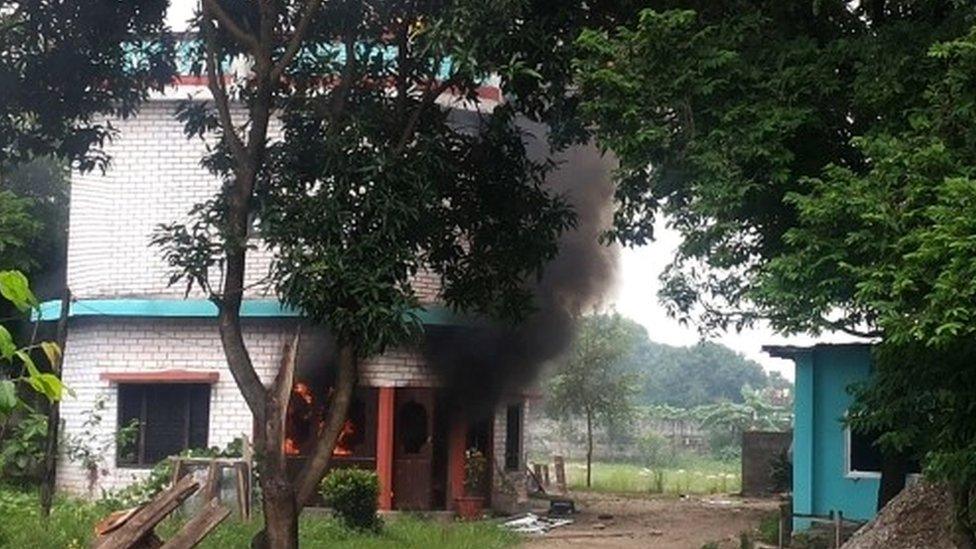Why India is concerned about Nepal's constitution
- Published
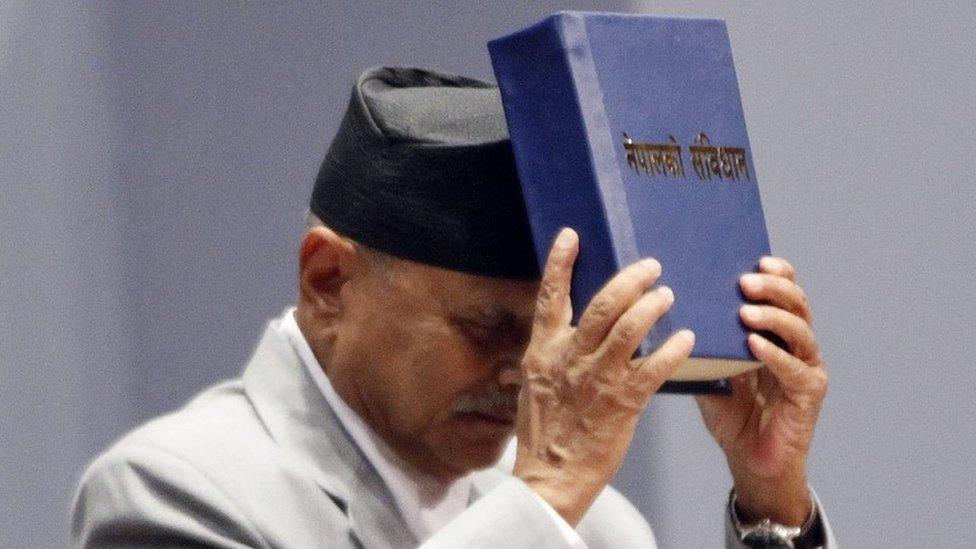
President Ram Baran Yadav signed the document in the capital Kathmandu on Sunday
Nepal's adoption of a new federal constitution has led to a souring of ties with its giant neighbour India.
The document defines the majority Hindu nation as a secular republic divided into seven federal provinces.
Although Delhi was one of the major backers of the process over the past decade, it believes the new constitution is not broad-based and is concerned that it could spur violence which could spill over into its own territory.
India's reaction in the past few days to events in Nepal has been quite remarkable.
On Friday, just a couple of days before the constitution was formally adopted (but after it had been passed by the Constituent Assembly) India's top diplomat was sent to Kathmandu at the behest of Prime Minister Narendra Modi.
Foreign Secretary S Jaishankar held discussions with Nepal's president and prime minister and leaders of all the major political parties including those who had opposed the constitution in its current form.
He is believed to have pressed the Nepalese government to delay the adoption of the constitution and hold discussions with political groups opposed to it.
Reports in the Indian media say that India's ambassador in Kathmandu spoke to Prime Minister Sushil Koirala hours before Sunday's constitution ceremony to express Delhi's disappointment at the process going through.
Violent reaction
And hours after the constitution was formally adopted, the Indian foreign ministry put out a terse statement only "noting" that it had taken place.
"We are concerned that the situation in several parts of the country bordering India continues to be violent," the statement said.
"We urge that issues on which there are differences should be resolved through dialogue in an atmosphere free from violence and intimidation, and institutionalised in a manner that would enable broad-based ownership and acceptance," it added.
It's hardly a ringing endorsement.
India's concern has been with the violent reaction to the constitution in the low-lying southern plains, adjoining India, the Terai.
Communities living in the Terai, especially the Madeshis and the Tharu ethnic minorities, have expressed concern that the proposed boundaries of the new provinces could lead to their political marginalisation.
The two groups make up nearly 40% of Nepal's population and the Madeshis share close ethnic ties with people in India.
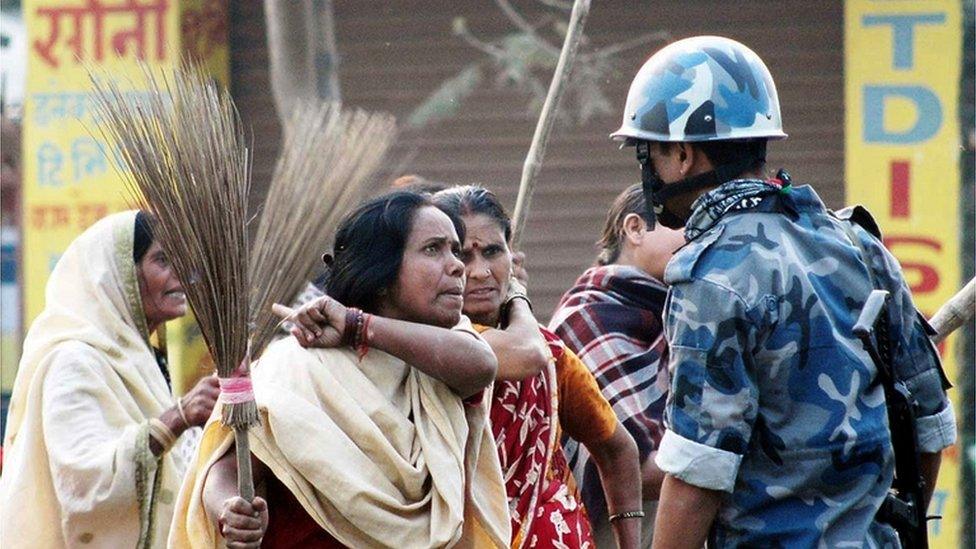
The Madeshis have often protested against Kathmandu
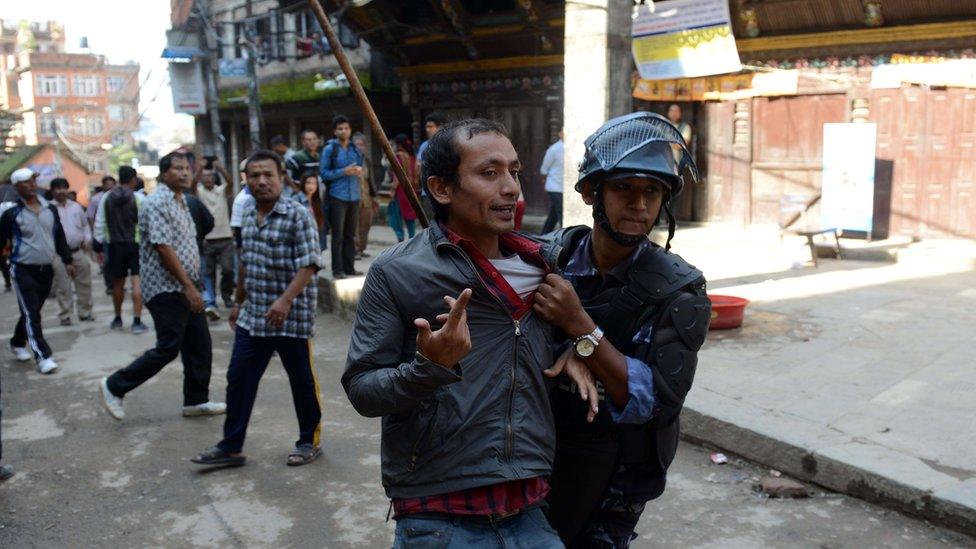
A protest in Kathmandu on Sunday was quickly broken up
India's strong reaction, some believe, stems from the fact that it was assured by Nepalese leaders that these concerns would be taken on board.
"But that did not happen," says Prof SD Muni, a strategic analyst who closely follows events in Nepal.
"India's concern is genuine because whatever happens in the Terai will spill over into India. So the violence is really worrying."
India shares a 1,751km (1,088-mile) open border with Nepal through which people pass freely but which has often concerned the country's security agencies because of its use by smugglers, human traffickers and terror suspects.
Next month, elections are due to take place in the politically crucial state of Bihar which adjoins Nepal.
'Interference'
The state is one of India's most lawless and there is concern that political instability across the border could have an impact on the elections.
But India is also aware of the sensitivities involved in its relations with Nepal because of which it finds itself in a difficult situation.
Many people in Nepal have long accused India of interfering in the country's affairs, something that Prof Muni concedes is not always unfounded.
"There was no point in sending [the foreign secretary] after the constitution had already been passed. It can be construed as interference," he says.
But he also believes that Nepal plays India to its advantage.
"They ask for India's help when they need it. But if they don't like what we do, they describe it as interference."
And then there is China, India's regional bugbear.
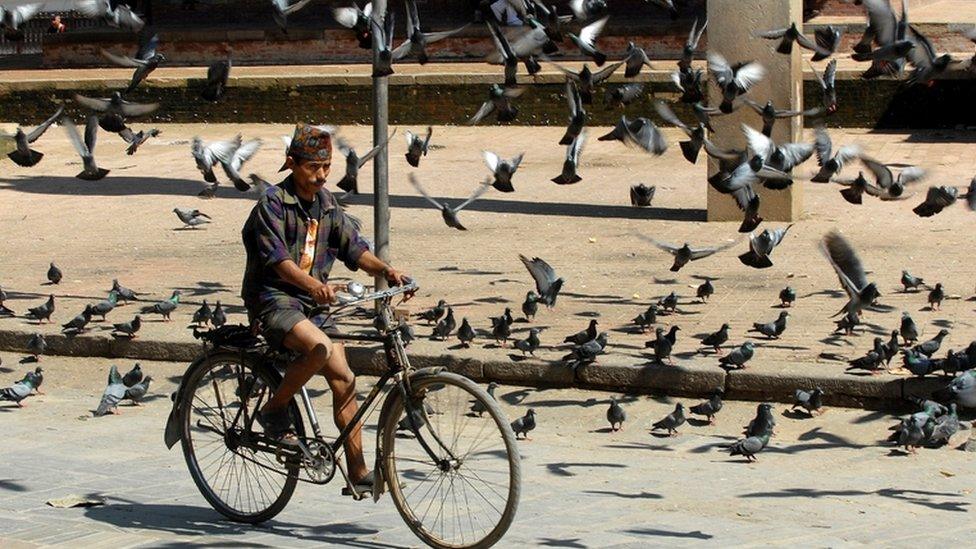
The constitution has evoked a mixed response in Nepal
In recent years, China has been ramping up its involvement in Nepal mainly through economic engagement much to India's discomfort in what it considers its backyard.
It is also wary of China's links with Nepal's Communists, never mind that most of its leadership has either been schooled in India or has spent many years in exile in this country.
And Beijing's reaction to Nepal's new constitution is noticeably warmer than India's was.
'Mature and evolve'
"As a friendly neighbour, Chinese side notes with pleasure that Nepal's Constituent Assembly has endorsed the new constitution," its foreign ministry spokesperson said.
There are some in India, though, who believe that the country should not be too critical of Nepal.
"The concerns of the Madhesis most certainly can be addressed through an amendment process in the coming months and years," an Indian Member of Parliament, DP Tripathi, told The Hindu newspaper.
"Nepal has adopted a constitution and like all other constitutions of the world, this too will mature and evolve," he said.
- Published19 September 2015
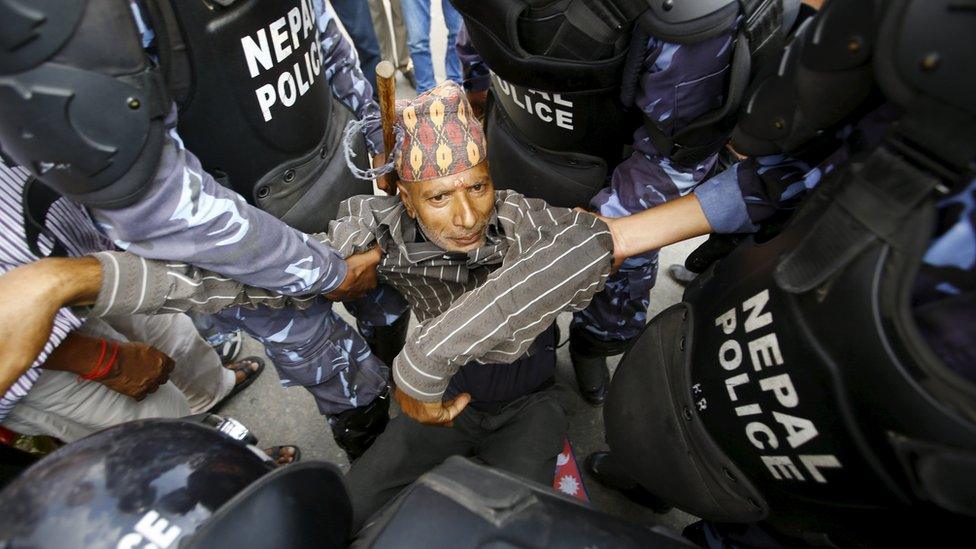
- Published15 July 2024
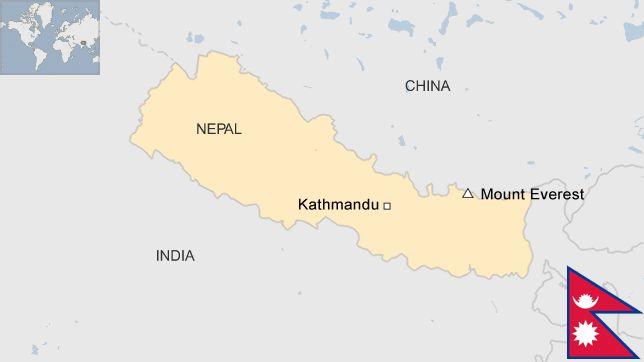
- Published25 August 2015
